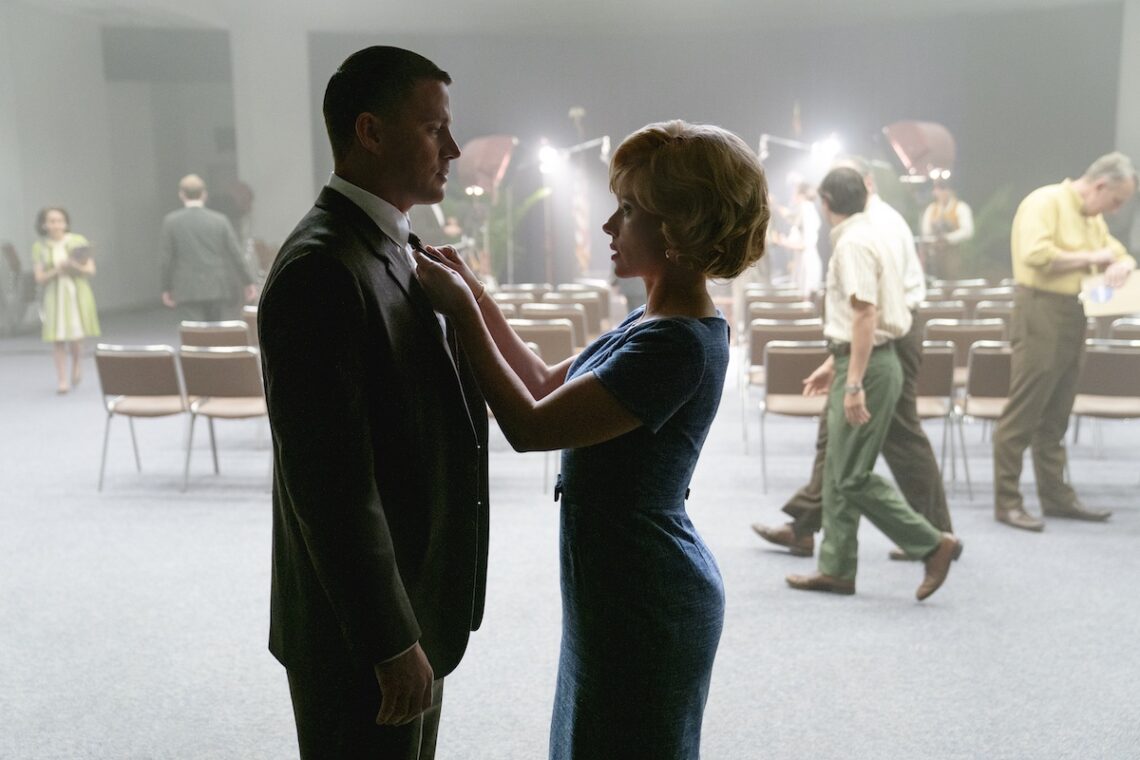Exploring the magic of ‘Fly Me to the Moon’: A nostalgic journey through music and romance
A cool 1960s vibe, an old-fashioned love theme, dramatic music befitting a lunar landing: Daniel Pemberton’s score for “Fly Me to the Moon” needed to accomplish all these and more.
Greg Berlanti’s rom-com with Scarlett Johansson as Kelly Jones, a Madison Avenue marketing genius hired to sell the moon to the American public, and Channing Tatum as Cole, the NASA director in charge of the Apollo 11 launch behind America’s first moon landing, meant Pemberton could incorporate different musical strands “from the fun aspect to the romantic couple element, and then NASA and a kind of Americana nostalgia,” says the English composer whose credits include “The Trial of the Chicago 7” and “Spider-Man: Across the Spider-Verse.”
A nostalgic score for a historic moment
“I was trying to capture this beautiful, melancholic nostalgia for a time that feels very distant now in America,” Pemberton adds. “One of my favorite pieces in the film is when Apollo 11 takes off and everyone is looking up at it, that sense of wonder but also a sense of loss for a time that feels long gone.”
This story is set at such a powerful moment in history, a time when everyone was on the same side, trying to pull together to achieve something for the good of humanity.
Pemberton’s score combines traditional orchestral sounds with vintage synthesizers and a jazz combo for a particular ’60s sound that features Fender Rhodes and Hammond B3 keyboards plus bongos, electric guitars, and bass.
The technology and spirit of the ’60s
“The synths often represent the technology of the NASA control center; then there is an epic element that has to do with NASA and the launch. I really wanted to capture the spirit of the time; it’s a love letter to the ’60s in some ways,” the composer says.
One of the most fun elements in Pemberton’s score is his sneaky theme for Moe Berkus (Woody Harrelson), the mysterious White House emissary who comes up with the plan to shoot a fake moon-landing sequence just in case the real one fails. “He’s a very tricky character,” Pemberton explains. “You don’t really know whose side he’s on. I wanted to write this light jazz that captured his playfulness.”
A love theme that soars
His romantic theme for Kelly (Johansson) and Cole (Tatum) gets the biggest play as they are flying from Florida to Louisiana in Cole’s private plane. “I wanted it to feel big and lush, with lots of strings on a strong, simple melodic line,” Pemberton says, noting that he rarely gets the opportunity to write a memorable theme “with heart and a lack of cynicism.”
Another unusual aspect is Pemberton’s use of soprano saxophone (notably heard in the “For All Mankind” track on the soundtrack album). “It represented the freedom of space travel, the release, flying freely above you. It has a very emotional tone, but also something quite spiritual,” he says.
Augmenting Pemberton’s score are several 1960s songs courtesy of music supervisor Season Kent, including Aretha Franklin’s offbeat version of Henry Mancini’s “Moon River.”
A reflection on the power of music in film
The music in “Fly Me to the Moon” is more than just a backdrop; it’s a character in its own right, guiding the audience through the emotional highs and lows of the story. Pemberton’s ability to blend different musical elements to evoke a sense of time and place is a testament to his skill as a composer.
For those interested in experiencing the magic of “Fly Me to the Moon,” you can watch the trailer and find more information about the film at https://trailers.movieetv.com/search/fly-me-to-the-moon.
the film and its score remind us of a time when the world came together to achieve the impossible, and the music serves as a beautiful, melancholic reminder of that era. As we look to the future, it’s worth reflecting on the power of music and storytelling to capture the essence of our shared human experience.

 Italian
Italian







